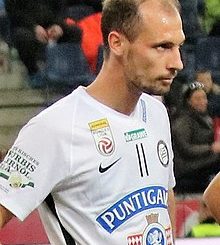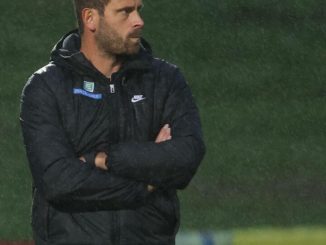
The Head Coach of SK Sturm Graz, Jürgen Säumel, Talks Racism at SK Sturm Graz
Racism continues to plague football across the globe, with many clubs facing the harsh reality of prejudice in their ranks. Jürgen Säumel, the head coach of SK Sturm Graz, recently shed light on an issue that continues to affect both the sport and society as a whole—racism within the football community. His candid remarks on this troubling subject have sparked a necessary conversation about how clubs, players, and fans need to collectively confront and eradicate racial discrimination.
The Personal Impact of Racism in Football
Säumel, who has a deep connection to football both as a former player and a coach, spoke about his experiences and the importance of addressing the racism that exists within the sport. “It’s heartbreaking,” Säumel remarked. “Football should be a space where people from all backgrounds come together, not a place for division. We, as a club, have a responsibility to lead by example and create an inclusive environment for everyone.”
Racism in football is not limited to isolated incidents. It’s a deep-rooted issue that often rears its ugly head during matches, whether in the form of verbal abuse from fans, discriminatory remarks from players, or media portrayals that perpetuate harmful stereotypes. For Säumel, it’s a subject he takes very seriously, as both a coach and a role model to younger athletes.
The Role of SK Sturm Graz in Combating Racism
SK Sturm Graz, one of Austria’s most storied football clubs, is not immune to these societal problems. While the club has long prided itself on its success and commitment to football excellence, the challenge of dealing with racism has proven to be a persistent issue. Säumel has emphasized that it’s not enough to simply condemn acts of racism after the fact; rather, action must be taken from all sides to prevent such incidents from occurring in the first place.
“We are committed to making SK Sturm Graz a safe and welcoming environment for all players, staff, and fans,” Säumel stated. “We will not tolerate discrimination in any form, and we will continue to educate our players, staff, and the wider community about the importance of respect and equality.”
Team Unity and Accountability
One of the key points Säumel raised during his interview was the importance of creating a united front against racism. The coach has made it clear that football clubs like SK Sturm Graz must hold not only the individuals responsible for discriminatory behavior accountable, but also ensure that everyone within the organization stands in solidarity against racism.
“It’s about building a culture of accountability and mutual respect,” Säumel said. “Players must hold each other accountable on and off the field, and as coaches, we must lead by example. If we don’t change the mindset and behavior at the grassroots level, we won’t see meaningful change in the larger world of football.”
Education and Prevention
One of the strongest ways SK Sturm Graz and other clubs can tackle racism is through education. Säumel has been an advocate for initiatives that encourage open dialogue and awareness, especially among young players. By teaching athletes about the destructive impact of racism early on in their careers, football clubs can create an atmosphere where inclusivity is the norm rather than the exception.
Säumel underscored the importance of working with local schools, youth leagues, and fan groups to promote tolerance. “Football is a reflection of society,” he said. “If we want to change attitudes in society, we have to start with the younger generation. Our players must act as role models, showing that respect for all people is paramount.”
The Future: A Long Road Ahead
While the discussion initiated by Jürgen Säumel is certainly a step in the right direction, the battle against racism in football is far from over. Racism is a deeply ingrained issue that requires long-term commitment and collective effort. Clubs like SK Sturm Graz, under the leadership of coaches like Säumel, are taking a proactive approach, but real change will only happen when the broader football community—players, fans, officials, and governing bodies—take a firm stand.
“Together, we can make football a better place for everyone,” Säumel concluded. “It’s going to take time, but if we remain committed and keep pushing for change, we can create an environment where racism has no place in the beautiful game.”
Jürgen Säumel’s brave comments on the issue of racism at SK Sturm Graz serve as a reminder that football, like all areas of society, must constantly fight against prejudice and discrimination. While progress has been made, the road ahead is long, and it is essential that everyone—coaches, players, and fans—remain engaged in the struggle for equality. With leaders like Säumel at the helm, there is hope that football can become a more inclusive and respectful space for people of all backgrounds.



Be the first to comment